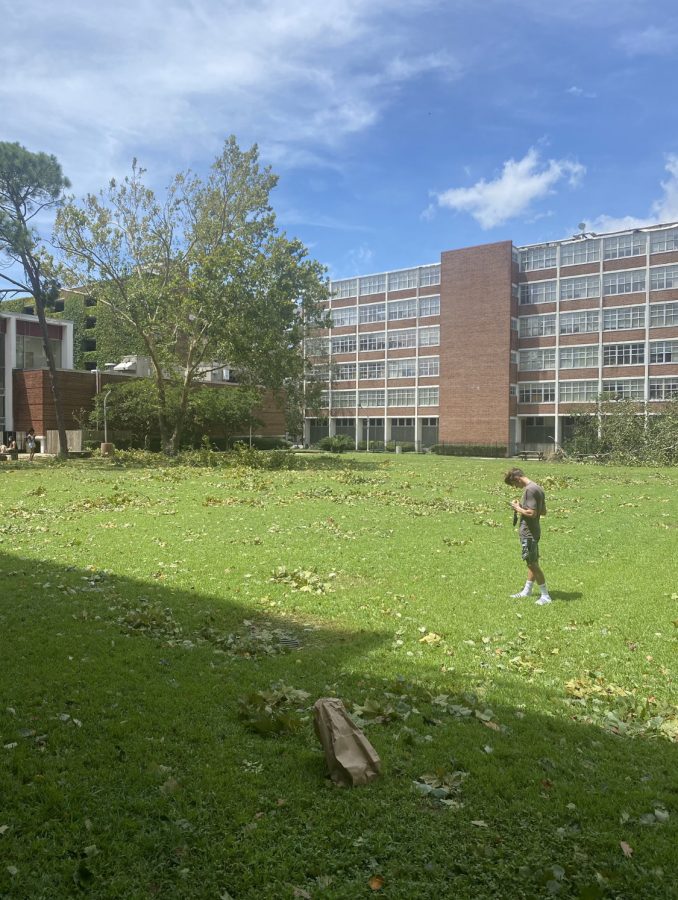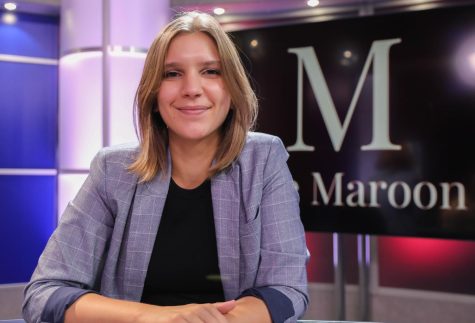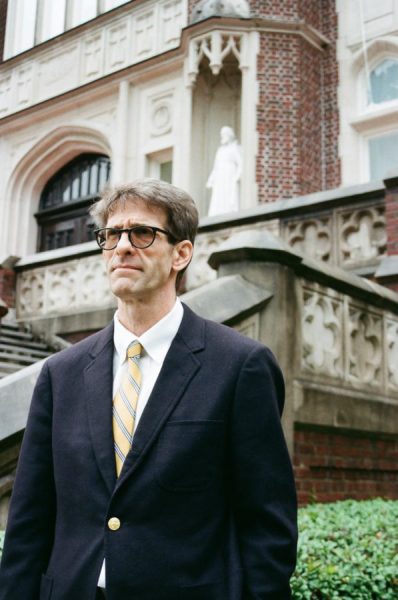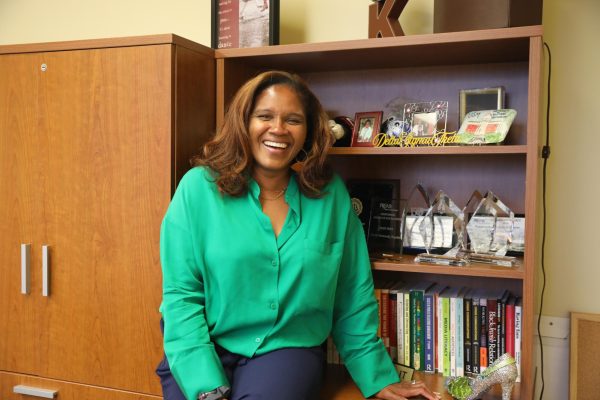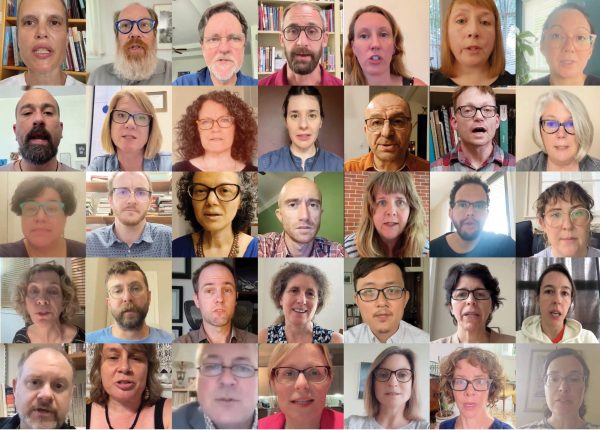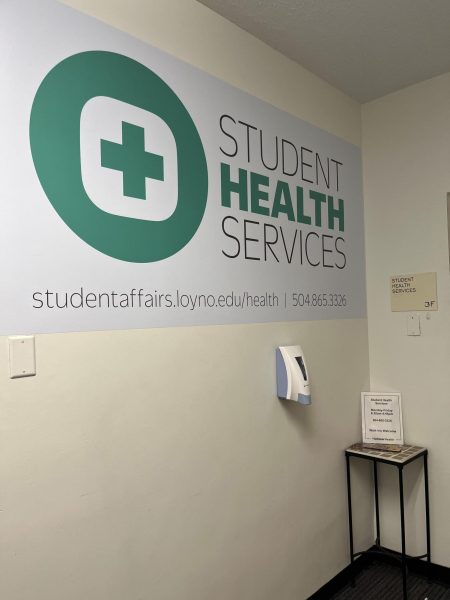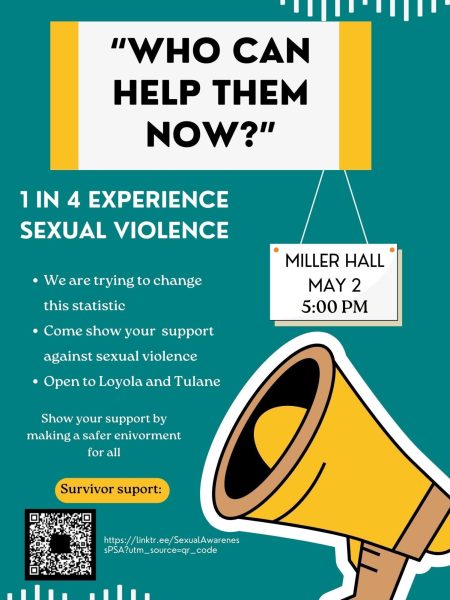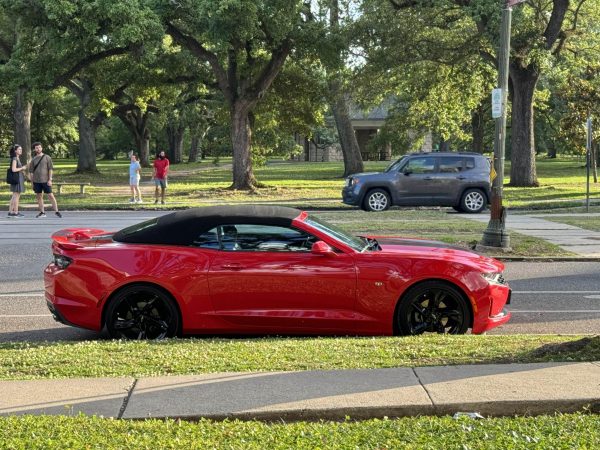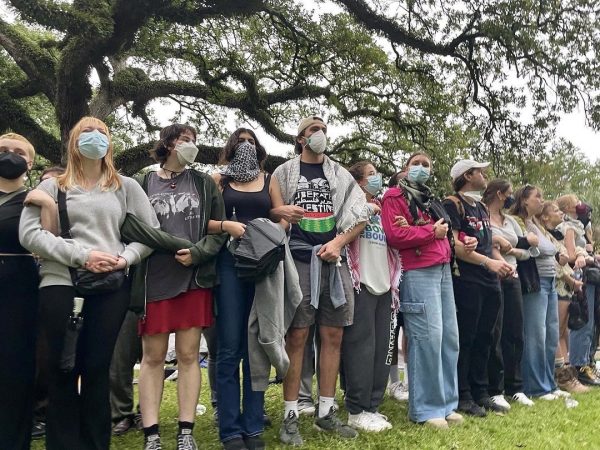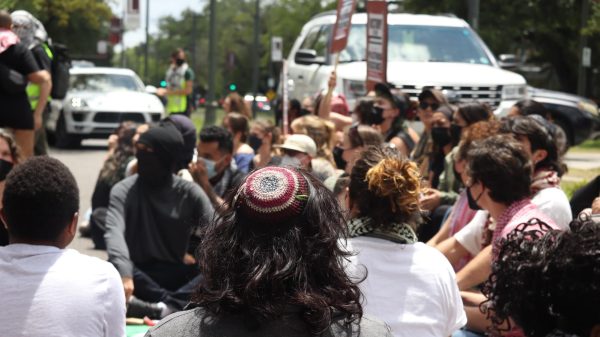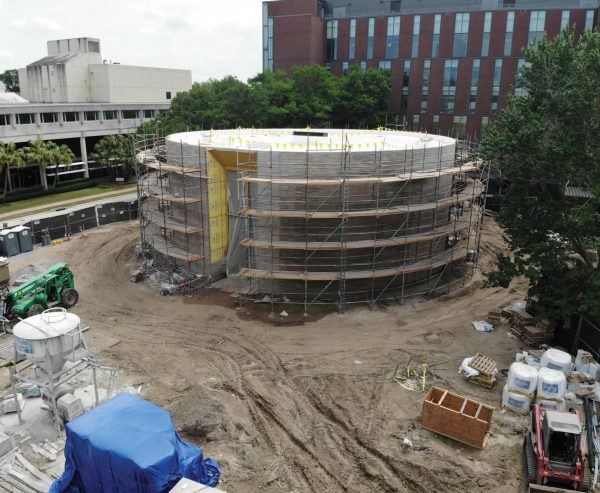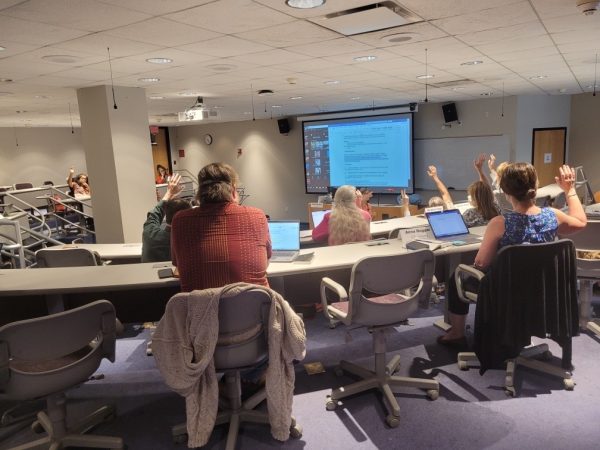The return to campus begins after Hurricane Ida
A student stands in the residential quad among fallen branches the morning after Hurricane Ida tore through campus. Students, faculty, and staff are making their returns to campus after the storm in the coming weeks.
September 14, 2021
After an unexpectedly lengthy campus closure due to Hurricane Ida, members of the Loyola community are finally returning for in-person instruction almost one month later.
Just two weeks after Hurricane Ida struck southeastern Louisiana, students returned to the residential halls on campus Monday, September 13, though on-campus instruction is not set to return until September 20.
The transition week between the return of some students and the move back to in-person instruction will be marked by a week of virtual learning. This week will give students, faculty, and staff who have evacuated the time to travel back to New Orleans, according to an email from University President Tania Tetlow.
“Certainly for some students whose houses are damaged, this is not a priority,” said Laura Jayne, director of student services in the College of Music and Media. “Tell your professor, tell your advisor if you have an issue. We can help with it.”
Tetlow said it is important for professors to provide some normalcy to students during a faculty and staff town hall last week. She urged faculty and staff to find ways to help students through the aftermath of the storm and transition back to campus.
Although the goal is to return to fully in-person instruction on September 20, Tetlow noted this will be done “with maximum flexibility because we know that the hardest hit students may not be able to make it by then.”
The return to in-person instruction is possible because Loyola’s campus sustained minimal damage, according to Tetlow. However, many surrounding areas that are home to commuter students as well as faculty and staff took the brunt of the storm, including major flooding in Laplace, according to an article from the Associated Press. Even now, many homes in the Greater New Orleans area, including parts of Jefferson Parish and the River Parishes, remain without power, according to Entergy’s outage map, and wifi which is essential for online instruction.
“We will come together as a community to be there for you,” Tetlow said of students whose lives have been upended by the storm.
The University has encouraged students affected by Ida to apply to the Student Hardship Fund which was originally created to assist students who had been negatively impacted by the pandemic. As of September 3, more than $9,000 had been raised for the fund to support students affected by the storm and will be distributed in small grants through Student Financial Services, according to Associate Director of Public Affairs Patricia Murret. Tetlow said the University is also working to set up an employee hardship fund.
To assess student needs after the storm, Loyola sent out a survey to all students and has received 1,800 responses already, a little less than half of Loyola’s student body, according to Murret. Based on this information, Tetlow said the University is working to provide temporary housing for students whose homes are uninhabitable as a result of the storm, including housing several dozen in open dorm rooms. She stressed that these available dorms are not the same dorms that have been set aside for student quarantine.
Students without their belongings after Ida can also request technology from the University so that they can return to virtual learning on the 13th, according to Jayne. Tetlow noted that laptops have already begun to be delivered to some students in affected areas.
“Our biggest concern is students who don’t know that we can help them and who haven’t heard that we really want to help them be in the right place,” Jayne said.
Along with housing and technology assistance, Loyola is also providing mental health care to students. In the coming weeks, the University Counseling Center is offering an Ida Trauma Processing Group to give students an opportunity to reflect on and process the events of Hurricane Ida, according to an email from Minden Vigier, a counseling intern. These sessions will take place September 14, 16, 21, and 23.
Students needing more immediate support can reach out to the University Counseling Center’s counselor on-call at any time of day, according to Loyola’s Hurricane Ida Relief and Resources page.
Immediately following Hurricane Ida, it was unclear whether the University would have to make drastic changes to its academic calendar to make up for lost time. Despite the loss of two weeks of instruction after the storm, the only change made has been the removal of the fall break scheduled for October 11 and 12, according to an email from Provost Tanuja Singh. Loyola’s Thanksgiving break and end of the semester date will remain the same as before the storm, according to Singh.
Singh said professors “will allow maximum flexibility” to ensure courses are completed in the remaining weeks of the semester.
This is in direct contrast to other New Orleans colleges, like Tulane University which has rescheduled its fall break to September 23 through 26, but pushed the end of its semester to Tuesday, December 21, according to Tulane’s Office of the University Registrar website.
Before returning to campus in the coming weeks, Loyola is urging students, faculty, and staff to get a rapid COVID-19 test since many evacuated across the country, according to an email from Alicia Bourque, chief student affairs officer. Despite this, the email stressed that vaccinated students should get tested if they experience symptoms or were concerned about possible exposure, but that all unvaccinated students need to get tested within 72 hours prior to their return to campus. Although Loyola’s COVID-19 Testing FAQ page provides students with the same information, during the town hall, Tetlow said that all students should get tested before returning to campus.
Bourque’s email instructed students to report any positive COVID-19 test results to [email protected]. A later COVID Connections email said students can submit proof of a negative test to Loyola’s public health portal.
As Loyola moves back to in-person instruction, Tetlow said that she is “very, very aware of just how tiring this is for all of us,” but that she hopes many “see campus as a sanctuary from all that’s going on.”


